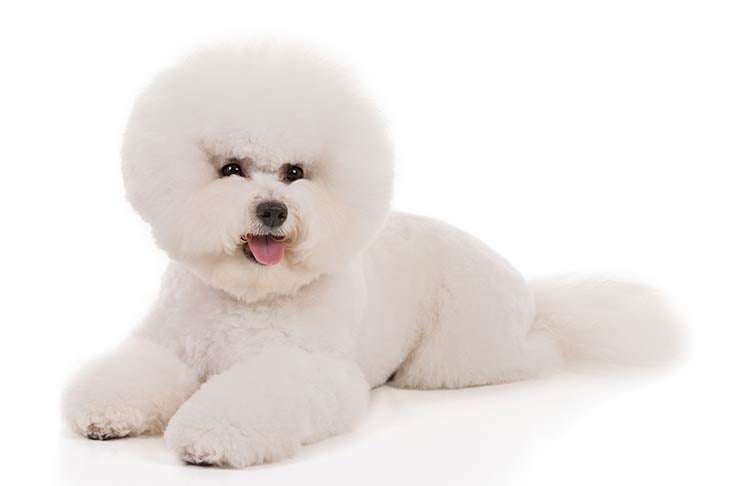Key Takeaways:
- Companion dogs are breeds that are known for their friendly and affectionate nature.
- The best companion dog breeds are typically small to medium-sized with a calm temperament.
- These breeds are great for families, seniors, or individuals looking for a loyal and loving pet.
- Some of the top companion dog breeds include the Cavalier King Charles Spaniel, Bichon Frise, and Pomeranian.
- When choosing a companion dog, it is important to consider factors such as energy level, grooming needs, and compatibility with children or other pets.
Are you looking for a furry friend to keep you company? Well, look no further! In this article, we will explore the 12 best breeds to be companion dogs. Whether you're a young teenager or an adult, having a loyal and loving companion by your side can bring immense joy and happiness into your life. Understanding the different breeds that excel in this role is essential for finding the perfect match for your personality and lifestyle. So, let's dive into the world of companion dogs and discover which breed will make your heart melt with their unwavering devotion. Get ready to embark on an adventure filled with wagging tails, wet kisses, and endless cuddles!
Best Dog Breeds for Companionship
Choosing the right dog breed for companionship is important because it determines the kind of bond you will have with your furry friend. Some breeds are naturally more inclined to be loyal and affectionate, making them perfect companions.
When selecting a companion dog breed, it's essential to consider factors such as temperament, size, and exercise needs. A good companion dog should be friendly, adaptable, and enjoy spending time with their owners. They should also be easy to train and have a calm disposition.
Having a companion dog can bring immense joy and comfort to your life. They provide unconditional love, companionship, and emotional support. Whether you're feeling lonely or stressed, having a loyal furry friend by your side can make all the difference in the world.
Why Choosing a Good Companion Dog Breed Matters
The choice of a companion dog breed matters because it affects the overall compatibility between you and your pet. Different breeds have varying temperaments and energy levels that may or may not align with your lifestyle.
By choosing a suitable companion dog breed, you increase the chances of forming a strong bond with your pet. This bond is crucial for creating a harmonious living environment where both you and your furry friend feel happy and fulfilled.
A good companion dog breed will not only provide companionship but also help reduce stress levels, promote physical activity through regular walks or playtime, and offer emotional support during challenging times.
The Benefits of Having a Companion Dog for Your Mental and Emotional Well-being
Having a companion dog can greatly benefit your mental and emotional well-being. Dogs are known for their ability to provide comfort, reduce stress levels, and improve overall mood.
Spending time with a companion dog has been shown to lower blood pressure and reduce anxiety. The presence of a loyal and affectionate pet can also help combat feelings of loneliness and depression.
Dogs are excellent listeners and can provide a sense of emotional support. They offer unconditional love and acceptance, which can be incredibly comforting during difficult times. Owning a companion dog can also encourage social interaction, as they often serve as conversation starters when out for walks or at the park.
Characteristics to Look for in a Loyal and Affectionate Companion Dog Breed
When searching for a loyal and affectionate companion dog breed, there are several key characteristics to consider:
- Temperament: Look for breeds known for their friendly and gentle nature. Dogs that are naturally sociable and enjoy being around people make great companions.
- Trainability: Choose a breed that is easy to train, as this will make it easier to establish a strong bond and teach them good manners.
- Affectionate: Seek breeds that have a reputation for being loving and attached to their owners. Dogs that enjoy cuddling, snuggling, and showering their humans with affection are ideal companions.
- Adaptability: Consider breeds that can adapt well to different living situations, whether you live in an apartment or have a large backyard.
Recommended Companion Dog Breeds: Three Great Options
If you're looking for the perfect companion dog breed, here are three excellent options:
1. Labrador Retriever:
The Labrador Retriever is known for its friendly demeanor, loyalty, and affectionate nature. They are highly trainable dogs that get along well with children and other pets. Labrador Retrievers are always eager to please their owners, making them excellent companions.
2. Cavalier King Charles Spaniel:
The Cavalier King Charles Spaniel is a small breed that is famous for its loving and gentle nature. They thrive on human companionship and enjoy being part of the family. Cavaliers are adaptable dogs that can easily fit into various lifestyles, making them wonderful companions for individuals or families.
3. Golden Retriever:
Golden Retrievers are known for their friendly and affectionate personalities. They are intelligent, loyal, and great with children, making them ideal family companions. Golden Retrievers also excel as therapy dogs due to their calm and gentle nature.
Factors to Consider When Selecting a Companion Dog Breed: Size and Exercise Needs
When choosing a companion dog breed, it's important to consider factors such as size and exercise needs:
Size: Determine whether you prefer a small, medium, or large-sized dog based on your living situation and personal preferences.
Exercise Needs: Consider how much time you can dedicate to exercising your dog. Some breeds require more physical activity than others, so choose one that matches your lifestyle.
How Owning a Companion Dog Can Improve Your Quality of Life
Owning a companion dog can significantly enhance your quality of life in numerous ways:
- Companionship: Your furry friend will always be there for you, providing unconditional love and support.
- Mental Health Benefits: Dogs have been shown to reduce stress levels, alleviate feelings of loneliness, and improve overall mood.
- Physical Health Benefits: Regular walks and playtime with your dog can improve cardiovascular health and increase physical activity levels.
- Social Interaction: Owning a dog can lead to increased socialization, as you'll meet other dog owners during walks or visits to the park.
Owning a companion dog is a rewarding experience that brings joy, love, and countless memories. They truly become an integral part of the family, enriching your life in ways you never thought possible.
In conclusion, these 12 dog breeds make great companion dogs for various reasons such as their friendly nature, loyalty, and adaptability. Whether you're looking for a small or large breed, there is a companion dog on this list that will suit your needs and provide you with love and companionship for many years to come.
What is the best dog for people over 60?
Poodles, Maltese, Pomeranians, and pugs are among the dog breeds that are recommended as good pets for seniors. These breeds are generally low-maintenance and require less exercise. However, the ideal dog breed for an older adult will depend on their individual lifestyle and capabilities.
Should a 70 year old get a dog?
Research indicates that elderly individuals who own dogs tend to have lower blood pressure and cholesterol levels compared to those who do not own pets. Additionally, owning a dog can decrease the likelihood of experiencing a heart attack and increase the chances of living a longer life.
What is the most friendly but protective dog?
German Shepherds are a popular breed for police dogs and as pets. They are known for their loyalty and ability to protect your home from intruders. They are highly trainable and make excellent companions.
Is 65 too old to get a dog?
Research has indicated that senior citizens who own pets experience various health advantages. The Mayo Clinic has stated that owning a pet, particularly a dog, can enhance the cardiovascular health, emotional well-being, and dietary habits of older adults.
What age dog is best for seniors?
According to Rappaport, middle-aged dogs are a better choice for seniors in their late 70s or 80s compared to senior dogs. This is because older dogs can experience similar health issues as humans, such as failing eyes and ears, as well as overwhelming diseases that can be challenging for both the pet and the owner.
What is the best non shedding dog for seniors?
Poodles are a great choice for elderly couples because they are gentle and caring. While they do need regular grooming every four to six weeks, they do not shed, which is a major advantage for seniors.

















